1975: The Parihaka Industry
November 1, 2022
By AHNZ
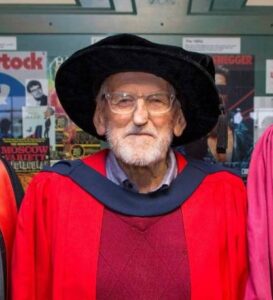 “Parihaka would become a thriving industry,” observes Radio New Zealand in their 2018 interview The Shame of Parihaka is so Great it can Never End. Which kind of industry do they mean? It’s not agriculture, not forestry, not energy, not steel. The thriving Parihaka industry is shame and business is good.
“Parihaka would become a thriving industry,” observes Radio New Zealand in their 2018 interview The Shame of Parihaka is so Great it can Never End. Which kind of industry do they mean? It’s not agriculture, not forestry, not energy, not steel. The thriving Parihaka industry is shame and business is good.
Maoris who live at, or have some loose affiliation with, some rural plots in the morning shadow of Mt Egmont make the shame and sell it wholesale. The shame is then re-packaged by artists, academics, lawyers, and politicians with value-added. Taxpayers then pay for and consume the shame in the form of periodic fits of guilt over suffering they are told they caused. Between fits there is a constant pulsing ebb of minor guilt until the nation can build itself up again for one of the periodical harvests of Great Shame. At any given time the nation is either distracted by the Never Ending Shame or else charging up for the next one. Parihaka is indeed an industry and that industry is the Grievance Industrial Complex.
Industry Founder was not, of course, a Maori, but a radical Communist white man: Dick Scott. Based on earlier work Scott (image, left) published Ask That Mountain (1975.) Until then Parihaka was remembered by history as one of New Zealand’s finest moments, a bloodless and peaceful resolution to an humanitarian crisis. Homeless Maoris had formed a squalid and illegal refugee camp west of Egmont which attracted criminals in hiding and, worse, cultists who claimed leadership and fermented rebellion. Deluded followers drew to Parihaka and even brought armfuls of clothing to dress their dead friends and family to prepare for Maori Wizards Te Whiti and Tohu Kakahi resurrecting them from the dead.
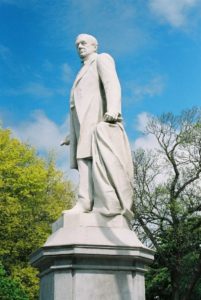 “Pakehas bring your guns, Maoriee bring your guns; fighting alone will settle things..it will be a burying place for them. Although there are 20,000 guns there…if they strike with the fist, you strike ; if they take prisoners, you take prisoners.” announced Te Whiti¹. The Maori Taliban attacked their neighbors and fermented conflict while the humanitarian crisis grew. There was no one tribe to blame but hundreds of displaced and culture-shocked tribesmen, most of them ex-slaves, looking for a new Boss or someone to provide meaning and commands in their lives. Somebody to step into the shoes of the Kings and Witchdoctors they had been born and bread and groomed to obey.
“Pakehas bring your guns, Maoriee bring your guns; fighting alone will settle things..it will be a burying place for them. Although there are 20,000 guns there…if they strike with the fist, you strike ; if they take prisoners, you take prisoners.” announced Te Whiti¹. The Maori Taliban attacked their neighbors and fermented conflict while the humanitarian crisis grew. There was no one tribe to blame but hundreds of displaced and culture-shocked tribesmen, most of them ex-slaves, looking for a new Boss or someone to provide meaning and commands in their lives. Somebody to step into the shoes of the Kings and Witchdoctors they had been born and bread and groomed to obey.
This situation was allowed to fester for 14 long years, successive governments playing kick-the-can, until some rare upstanding politicians came forward to fix the problem during the John Hall Ministry. Meanwhile Te Whiti had threatened the Settler government and vainly claimed to be the supreme leader of New Zealand! Taking his life in his hands, Native Minister William Rolleston approached this unstable man personally. Te Whiti refused to make peace or negotiate in any way, famously saying “the potato is cooked.” The cultist was now too invested to back down without losing his position in front of his followers. Hall’s cabinet had done everything they could to avoid and delay the clash by giving Te Whiti every out but in the end Rolleston had to say ‘Queen and law supreme at Parihaka as elsewhere’. Even so, 14 days notice were given before the dangerous powder keg at Parihaka was defused and with no harm to anyone. As a matter of honor the previous Native Minister, John Bryce, was also by Rolleston’s side since he had put himself on the line for this outcome and lost his job for it but had now, in the end, been vindicated.
Before Comrade Scott’s literary adventure nobody was looking back anything but fondly on Parihaka. Wishing to enlist Maori suffering for his Communist Cause, after the example of US Communists at the same time, Scott revived an old attack on John Bryce. George Rusden was the original history adventurer who had tried to make the Parihaka Industry happen in the 1880s but was caught in the act by the law and prosecuted and made to retract. Scott took the discredited Rusden work, packaged it in a new book cover and a new title with words of his own and stuck gold! Ask That Mountain turned New Zealand history upside-down and founded a fabricated memeplex of shame so great and lucritive that it could never be allowed to end.
“The basis of Te Whiti’s system was a denial of the reality of the confiscation, and a promise to restore to his people all their land by divine aid” – p480 The New Zealand Wars, James Cowen (1922)
“The Parihaka terrorist cult had been building for about 14 years and was becoming a serious danger. The New Zealand Parliament was called early in 1880 to try to solve the growing crisis. Finally, in November 1881, the armed insurgents were met with overwhelming martial force to the point where the ringleaders had no choice but to go quietly.” – 1881: Bloodless End to the Affair at Parihaka, AHNZ
“For the people of Parihaka, the truth about them lies in their own historical songs or mōteatea, not in the newspapers of the past.” – Deena Coster, Stuff (2020)
“…pillaged by soldiers, who made off with treasured possessions, including greenstone, mats and cloaks…Women were also raped during the invasion.” – Deena Coster, Stuff (2017)
“Waiata (songs) I looked at, the English translation was terrible. The shame is so great it can never end.” – Rachel Buchanan, RNZ (2018)
“Kahore hoki e te whakama e tau to ngaro ake nei;” “Such is the shame its conclusion will not be achieved.” – Shame mantra performed by Taranaki tribesmen for Commission of Inquiry into Confiscated Lands (1927)²
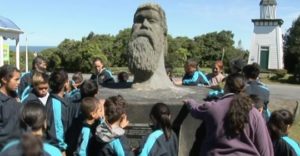 Dick Scott had opened a goldmine of which fame and more book deals, and a doctorate, were his share in the payment. Songs, movies, countless newspaper and journal articles, exhibits, TV and radio shows, legal briefs, cultural consultations, and government investigations and photo opportunities have been paying off from the industry Scott founded for 3 generations now. Of course, the fungible and renewable resource it is based on is that ‘great shame that can never end’.
Dick Scott had opened a goldmine of which fame and more book deals, and a doctorate, were his share in the payment. Songs, movies, countless newspaper and journal articles, exhibits, TV and radio shows, legal briefs, cultural consultations, and government investigations and photo opportunities have been paying off from the industry Scott founded for 3 generations now. Of course, the fungible and renewable resource it is based on is that ‘great shame that can never end’.
The Children of Parihaka (2012) is a documentary you are not allowed to see. It follows Millennial generation children on a bus tour of propaganda and indoctrination where they are instructed by their trusted elders of the Dick Scott version of Parihaka. They were taken to Hokitika (left) to see the monument (est. March, 2000) remembering the volunteer Maori workers who cleared the terrace at Seaview. They were taken to see the Anderson’s Bay Hoax (est. 1981) too. They were told ghost stories about how their ancestors were tortured men, shamed and jailed and forced to work in poverty and disease until they dropped. The children were made to cry for the sake of lies and the entire thing captured on film. This exploitation is how the memeplex of shame is re-sewn for the future so the Parihaka Industry will never end. If nobody is infected with toxic shame now then there will be nobody to compensate in the next season of grief. The gravy grain would run off its tracks.
Rather than an exciting re-release for the 10th year anniversary of Children of Parihaka it remains carefully curated. It’s a pay-per-view situation jealously guarded like some celebrity that insists on no pictures unless you pay. In particular, you must pay either to be at Parihaka itself to see the film or have a gatekeeper come to you. This way the agent can provide running troubleshooting on the problematic nature of the film and ensure a ‘receptive’ uncritical viewing and even select in advance an appropriately fawning audience. Rather than find this unusual delivery system suspicious it is viewed by the mainstream as validation of how true and great and culturally-precious the blessed digital disk (holy relic) must be and how blessed they are who have received it!
Scott’s and Rusden’s stories have been elevated to a status beyond history and into legend which must be believed to be seen. Facts don’t matter, documentary evidence doesn’t matter; The past is a Social Construct in the Parihaka Industry. The ‘truth’ comes from songs and rumors such as the ones told to the children on the bus or contrived to elicit the nightmare traumas and tears. If you feel it is true it becomes true no matter how impossible. Thus, the Parihaka story has expanded to include slave labour camps and wholesale slaughter. Rape. Looting of treasures untold such as greenstone artifacts and ancient mats and cloaks.
Revisionist History
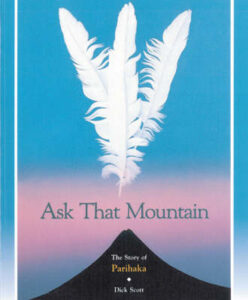 In 2017 Radio New Zealand published an article called Govt to Apologise for Parihaka Rapes which they quickly redacted to Govt to Apologise for Parihaka Atrocities. After publishing, it must have occurred to Radio Government that these ‘rapes’ were a modern folk tale. The Parihaka Papakainga Trust, who were being apologised to and given $9,000,000 probably provided the ‘rape’ story. And, I suppose, Chris Finlayson (Minister Responsible for Treaty of Waitangi Negotiations) or one of his goons had RNZ shut it down saying “Hey, we’re not apologising for THAT!” As it stands, the published article doesn’t make must sense without its ‘rape’ headline. Now it says “Parihaka atrocities” without hinting at what atrocities these could be? The New Zealand History Federation caught the flip-flop on their FB page and suggest the headline hasn’t quite caught up with the revised article. Subsequently even the NZ History Federation backed out of opposition and deleted their post rightly catching false history in the act. By the early 2020s nobody is correcting the revisionist history at all and claims of “rape” and “sacking” are allowed to stand unchallenged. The Parihaka Industry is powered by toxic shame and to believe in it is an article of faith.
In 2017 Radio New Zealand published an article called Govt to Apologise for Parihaka Rapes which they quickly redacted to Govt to Apologise for Parihaka Atrocities. After publishing, it must have occurred to Radio Government that these ‘rapes’ were a modern folk tale. The Parihaka Papakainga Trust, who were being apologised to and given $9,000,000 probably provided the ‘rape’ story. And, I suppose, Chris Finlayson (Minister Responsible for Treaty of Waitangi Negotiations) or one of his goons had RNZ shut it down saying “Hey, we’re not apologising for THAT!” As it stands, the published article doesn’t make must sense without its ‘rape’ headline. Now it says “Parihaka atrocities” without hinting at what atrocities these could be? The New Zealand History Federation caught the flip-flop on their FB page and suggest the headline hasn’t quite caught up with the revised article. Subsequently even the NZ History Federation backed out of opposition and deleted their post rightly catching false history in the act. By the early 2020s nobody is correcting the revisionist history at all and claims of “rape” and “sacking” are allowed to stand unchallenged. The Parihaka Industry is powered by toxic shame and to believe in it is an article of faith.
Yet, we know there was no sacking of Parihaka. Minister Rolleston even made available government wagons so lawful Maoris could withdraw from the cult taking their property away with them. You wont hear that from mainstream history now. An apologist might suggest that Te Whiti’s large stock of arms and ammunition were robbed from him. However, to admit that would do more damage to the ‘Parihaka Pacifist’ narrative than a clever con artist could allow. Can’t complain about the confiscation of the Parihaka armory while maintaining the fable that Parihaka was all about passive resistance!
To repeat or write about the past the way we did even as recently as 2017 is to be cancelled. Having cut down everyone who doesn’t swim in the Dick Scott current those with fresh blood on their swords look around and proclaim a consensus. You will not pass exams or get a teaching position or be published unless you repeat the Ask That Mountain orthodoxy and tip your hat to it. Entire websites and social media sites have yielded to this rather than stand up for what they believed in only months before and have blocked users who have not yielded to the New Conformity. Your options as a free thinker are either to not participate in the history of your own country at all and keep being able to access resources without being part of them or else say what you think and be excluded for it (eg. Timespanner and NZHistory.gov both prominent adopters of this Cancel Culture.)
For those of us who want New Zealand and her people to do well we must continue to insist on a national story founded solidly on the truth. We are fortunate for a little country to have a great wealth of resources and excellent scholars from the past who have organised it for us to challenge or accept. History revisionism is part of a healthy, living, culture as we find our way to whatever it is New Zealanders are destined to become. Let it be done on honest terms not by Compelled Speech and decided according to what we know and can prove rather than yielding to politics be in control of history.
“Te Pire Haeata ki Parihaka (also known as the Parihaka Reconciliation Bill) passed its second reading on 1 August 2019 and introduces new and unique protection for the name PARIHAKA that will prevent its unauthorised commercial use….
“Unless a person has requested written authorisation and received consent from the trustees of the Parihaka Papakāinga Trust, then that person cannot: display, exhibit, or otherwise use…the name Parihaka [or] resembles the name Parihaka…trustees may also withhold their authorisation if the trustees consider the proposed use would demean the name Parihaka.”
“In the interests of protecting artistic and political freedom of expression, the legislation does not prevent any persons from using the name Parihaka: for genuine creative, educational, or historical purposes…”
“stop unauthorised commercial use of the name Parihaka, misleading, confusing, and deceptive use of the name Parihaka, and any use that demeans the name Parihaka….These powers will enable the Parihaka Papakāinga Trust to stop the misuse, misappropriation, and misleading behaviour they have encountered…. ‘anything that is good for Māori, will be good for New Zealand’, and I encourage Māori to continue to seek these protections to ensure Māori tikanga continues to be reflected in our legal framework.” – Lynell Tuffery Huria, Wellington indigenous intellectual property law expert, AJ Park IP Lawyers (2019); Wayback Machine
Cancel Culture kills the discipline of history and replaces it with politically compelled speech. The Parihaka Reconciliation Act (2019) means it will be safe to speak provided you remain an amateur and out of the commercial arena. The world of official publications has been reserved only for Right Think adherents. Even then, one’s free expression is not by right but by excuse of being “genuine” according to the legislators. And what the hell does that mean anyway? Takes away free speech and replaces it with a conditional privilege.
—
1 Taranaki Herald, 15 November 1881; Papers Past
2 Ref. Beating shame: Parihaka and the Very Long Sorry, Rachel Buchanan (2012)
Image ref. Dick Scott in 2016 receiving an honorary doctorate from Massey University; Stuff (2020)
Image ref. William Rolleston statue, Christchurch; Kete Christchurch
2 thoughts on "1975: The Parihaka Industry"
Leave a Reply
 Like Comment Share
Like Comment Share

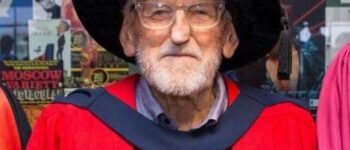




Rick regardless of the fact or fiction associated with the history of your post , I suspect the only people who will eventually profit from the Parihaka industry,(whatever that is) will the Maori elite at the top of the pyramid while the little people get to fight over the crumbs. Nothing new about that scenario.
My laymans interest in the Parihaka story stems from the fact my wife spent her early years in the 1950-60’s growing up in the settlement and was present on the day in 1961-2 the historic meeting house burnt to the ground claiming the life of her maternal grandfather George Te Kahui Pokai Aitua.
Pokai Aitua was a disciple of Te Whiti o Rongomai and a much respected orator around the Taranaki region. Within the family he is a figure of huge importance.
Pokai Aitua’s personal philosophy which was passed down through his children was that the family, while not losing sight of their culture, should embrace the Pakeha way, get an education and make something of their lives. and lead the way for future generations. Suffice to say, 90% of them have done that.
Whatever the truth of Parihaka, I suspect the popular narrative is the only story being told.
Thanks for that, I’m glad to have your man on record.
Yes, the little people are fuel in the engine of suffering. If their suffering were to end that would make the industry obsolete. There have been something like 9 apologies so far and we’ll live to see it hit 10 before the Libertarian Revolution puts an end to it at last.